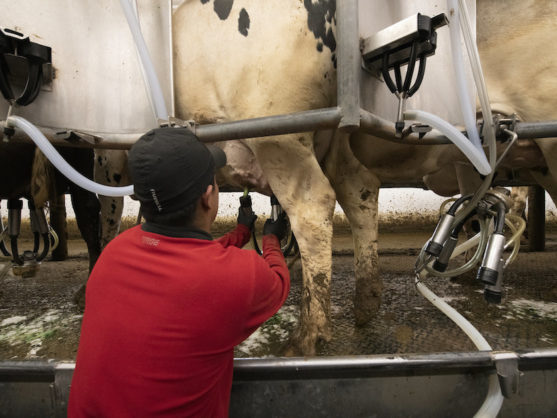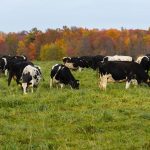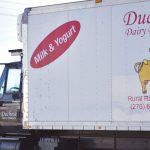
A social media storm in the United Kingdom around a new feed additive to curb greenhouse gas emissions from cattle sparked a government effort this month to limit the spread of misinformation. While the actions have eased public misconceptions, analysts tell Agri-Pulse the episode highlights the threat misinformation poses to global agriculture trade and technological progress and could be a harbinger of future challenges.
At the end of last month, Arla Foods, the UK’s largest dairy product producer, announced that it would trial a new feed additive at around 30 of its farms. The additive, known as Bovaer, had been shown to reduce intestinal methane emissions from cows by as much as 27%, according to a report from the Danish Center for Food and Agriculture.
The news was met with concerns from some online, who questioned the product’s safety over the use of certain compounds – despite dozens of countries’ food regulatory bodies approving Bovaer for use and finding no safety issues with products from cows consuming feed with Bovaer.
Multiple UK dairy farms not involved in the Arla trial also took to social media to emphasize that they do not use the feed additive, or pledge not to do so in the future.
In response, Robin May, the UK’s chief scientific advisor at the Food Standards Agency – the agency responsible for food safety – spoke to national media to push back against the unfounded claims. The UK government also published a fact sheet debunking some of the narratives percolating on social media.
The episode serves as a “teachable moment,” said Paul Bleiberg, executive vice president for government relations at the U.S.-based National Milk Producers Federation. “This is not the last time we’re going to be talking about some kind of new technology or innovation that may be beneficial for dairy farmers to look at using.”
Representatives from the dairy sector told Agri-Pulse they were reassured by the UK government’s response, and by the fact that, outside of some chatter in Australia, the misinformation did not spread to other countries. But they warned that the episode highlights some of the challenges the U.S. agriculture sector could face as it innovates.
“It was surprising to see the level of misinformation spike so rapidly,” Matt Herrick, executive vice president at the International Dairy Foods Association said. Bovaer, he added, is used more widely in the UK than in the U.S. but the introduction of any new technology product in the agriculture or food space anywhere comes with misinformation risks.
You can now read the most important #news on #eDairyNews #Whatsapp channels!!!
🇺🇸 eDairy News INGLÊS: https://whatsapp.com/channel/0029VaKsjzGDTkJyIN6hcP1K























